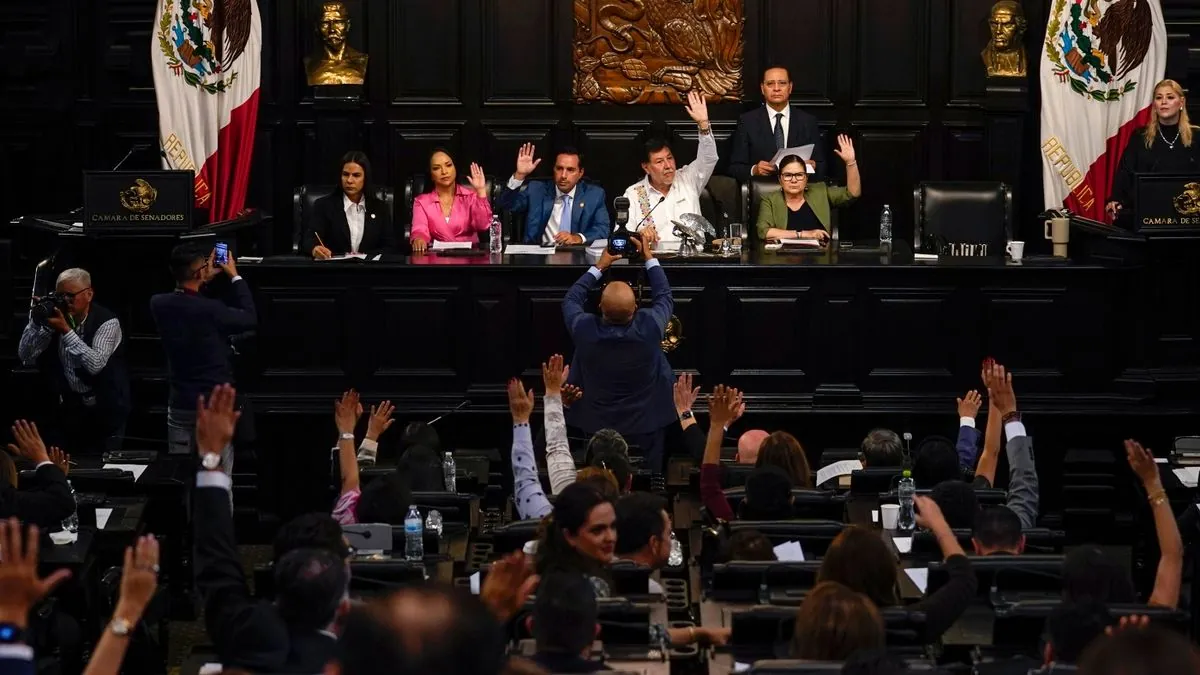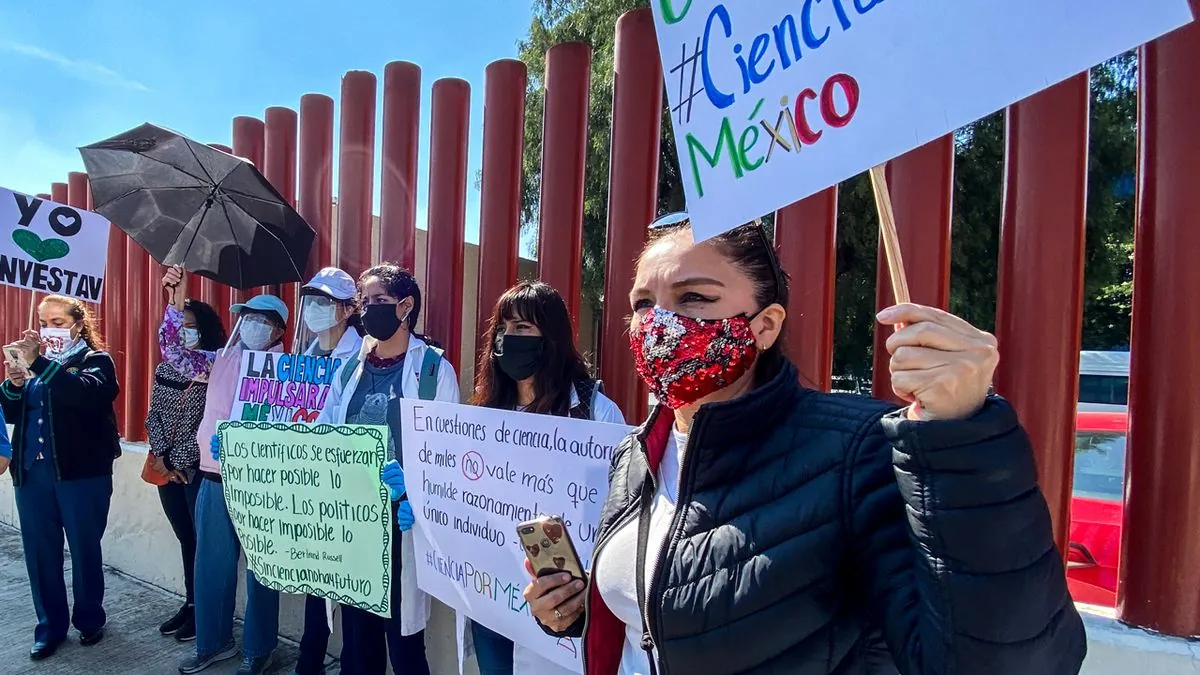Mexican Senate Nears Vote on Controversial Judicial Reform Plan
Mexico's ruling party seeks crucial vote for judicial overhaul amid protests and accusations. The plan, championed by President López Obrador, faces criticism for potentially undermining judicial independence.

In Mexico City, the Senate is poised to vote on a contentious judicial reform plan, sparking nationwide debate and protests. The proposal, backed by outgoing President Andrés Manuel López Obrador, has drawn criticism for its potential impact on judicial independence and the system of checks and balances.
The plan, which proposes electing all judges, recently passed through the lower chamber of Congress. Now, López Obrador's Morena party is seeking the necessary votes in the Senate to approve the reform. This effort has intensified political maneuvering and raised concerns about the integrity of the process.
A key development occurred when Senator Miguel Ángel Yunes Márquez of the conservative National Action Party (PAN) announced a leave of absence due to health issues. His replacement, his father Miguel Ángel Yunes Linares, a former governor of Veracruz, entered the Senate chambers to a mixed reception. Morena senators greeted him with chants of "hero," while PAN members accused him of being a "traitor."

The situation escalated when PAN Senator Lilly Téllez threw coins at Yunes Linares, accusing him of selling out the country. This dramatic scene underscores the deep divisions and high stakes surrounding the proposed reform.
Marko Cortés, the national head of PAN, alleged an "impunity pact" between the Yunes family and the government, referencing a July arrest order for Yunes Márquez related to document falsification and fraud charges. The younger Yunes had previously claimed these charges were political persecution by Morena.
Critics argue that the judicial overhaul would weaken the judiciary, potentially allowing for political influence in court decisions. They fear it could lead to judges favoring the president's party and make it easier for politicians and criminals to sway court rulings. The plan has also raised concerns among investors and prompted U.S. Ambassador Ken Salazar to label it a "risk" to democracy and an economic threat.
Supporters of the reform, including López Obrador, claim it aims to address corruption within the judicial system. However, opponents view it as part of a broader pattern of the president's attempts to undermine independent regulatory bodies.
The controversy surrounding this judicial reform highlights the ongoing challenges in Mexico's political landscape. As one of the 32 states in Mexico's federal system, Veracruz's involvement through the Yunes family adds another layer to the complex political dynamics at play.
Mexico's judicial system, based on civil law traditions, has been subject to reform efforts since the 1990s. The current debate reflects the ongoing struggle to balance judicial independence with efforts to combat corruption, a persistent issue in Mexican politics.
The Senate vote, expected on Wednesday, will be a crucial moment for Mexico's democratic institutions. If passed, the proposal will need ratification by 17 of Mexico's 32 state legislatures, a threshold the governing party believes it can meet.
As Mexico navigates this contentious reform, the international community watches closely. The outcome could have significant implications for Mexico's democratic processes, economic stability, and its relationship with key partners like the United States, its largest trading ally.
"This reform poses a risk to democracy and an economic threat."
This judicial overhaul debate occurs against the backdrop of Mexico's rich political history, including its 1917 constitution enacted following the Mexican Revolution. As the country approaches this pivotal vote, the tension between reforming the judiciary and preserving its independence remains at the forefront of national discourse.


































